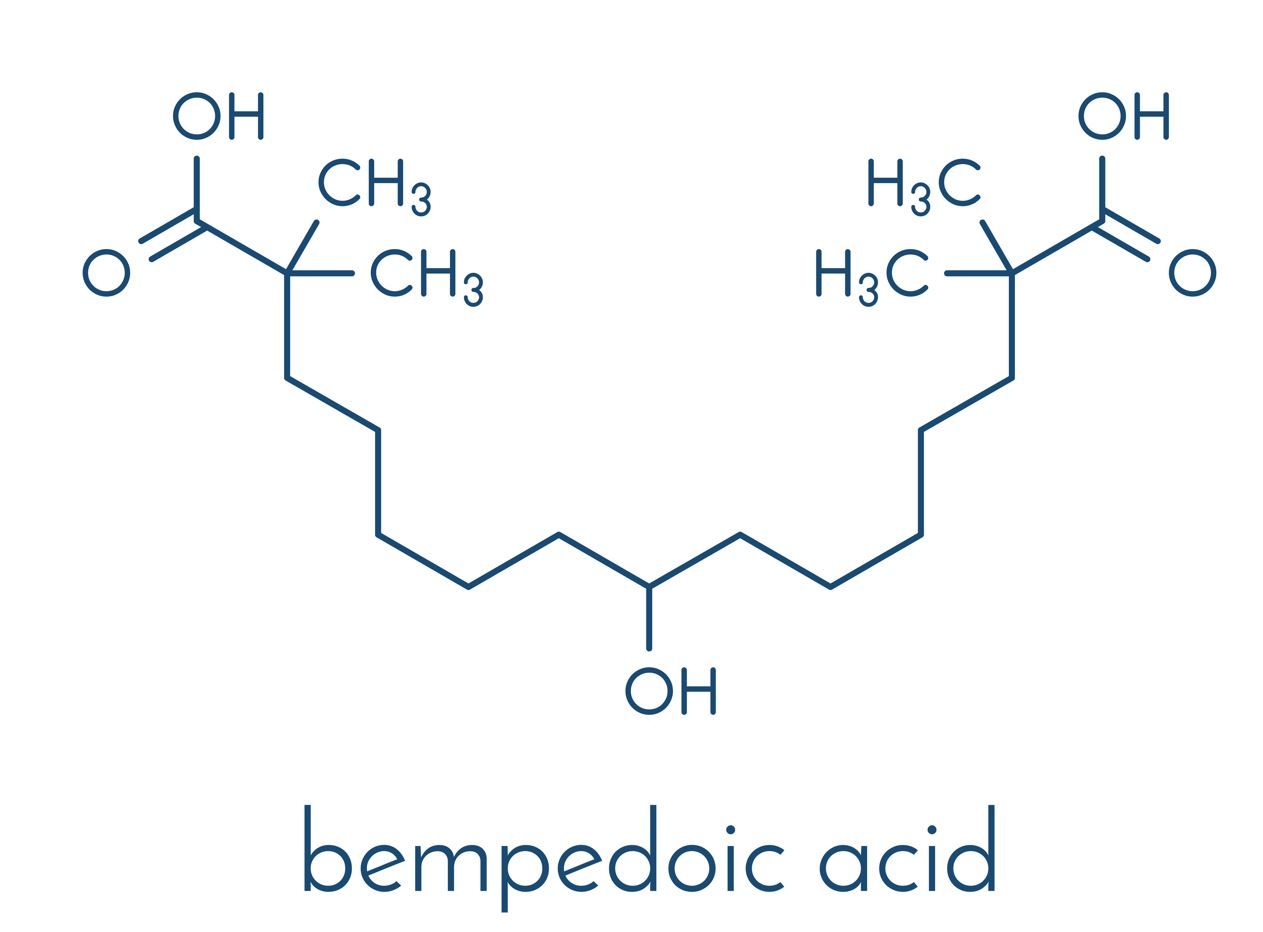Bempedoic Acid Associated with Reduced CV Risk in Statin-Intolerant Individuals Regardless of Ethnicity
ACC.24: Data from an analysis of the CLEAR Outcomes trial showed bempedoic acid was well-tolerated and reduced CV events in Hispanic/Latinx and non-Hispanic/Latinx participants.

Bempedoic acid was well-tolerated and effective for lowering LDL-C and reducing cardiovascular (CV) risk, regardless of ethnicity, in statin-intolerant individuals at increased CV risk, according to a new prespecified, exploratory analysis of the CLEAR Outcomes clinical trial.1
Findings will be presented at the American College of Cardiology’s 73rd Annual Scientific Session, held April 6-8, 2024, in Atlanta, Georgia.
“Hispanic/Latinx individuals face a disproportionate burden of cardiometabolic risk factors and significant disparities in treatment, yet have been underrepresented in cardiovascular (CV) outcome trials,” wrote researchers. The CLEAR Outcomes trial, which enrolled nearly 14 000 participants at high CV risk with statin intolerance, presented the opportunity to explore the effects of bempedoic acid on CV risk reduction among the study’s subpopulation of Hispanic/Latinx participants.1
The participants in CLEAR Outcomes were randomly assigned to receive bempedoic acid 180 mg or placebo. The primary endpoint was a 4-component composite of major adverse CV events (MACE-4), defined as death from CV causes, nonfatal myocardial infarction, nonfatal stroke, or coronary revascularization. Results showed that compared to placebo, treatment with bempedoic acid was associated with a 21% decrease in LDL-C and with a 13% relative reduction in the risk of MACE-4.2
Hispanic/Latinx individuals recruited from Latin America and North America comprised 17% of the cohort, with 1190 receiving bempedoic acid and 1143 receiving placebo, according to the current analysis.1
Compared to non-Hispanic/Latinx participants, more Hispanic/Latinx participants were women (47% vs 56%), were enrolled for primary prevention (29% vs 33%), had more diabetes (43% vs 61%), more statin use (21% vs 29%), lower use of ezetimibe (12% vs 7%), and higher median high-sensitivity C-reactive protein (hsCRP; 2.2 mg/L vs 2.7 mg/L).1
Researchers noted that at month 6, least-squares mean placebo-corrected LDL-C change from baseline (-21.0% [95% CI -23.0 to -19.0] and -21.2% [95% CI -22.1 to -20.2]) and placebo-corrected absolute LDL-C change from baseline (-27.2 mg/dL [95% CI -29.8 to -24.5] and -29.7 [95% CI -30.9 to -28.4]) were similar in Hispanic/Latinx participants and non-Hispanic/Latinx individuals, respectively.1
Investigators also found that bempedoic acid reduced the risk of MACE-4 compared to placebo in both non-Hispanic/Latinx and Hispanic/Latinx participants. Among Hispanic/Latinx individuals in the bempedoic acid group, there were 85 MACE-4 events vs 106 events among those who received placebo (HR 0.77, 95% CI 0.58-1.02). There were 734 events observed among non-Hispanic/Latinx participants in the bempedoic acid group compared to 821 events among non-Hispanic/Latinx individuals in the placebo group (HR 0.89, 95% CI 0.80-0.98).1
“Adjustment for covariates (age, sex, region, race, lipid-modifying therapy, diabetes, CV risk category, LDL-C, hsCRP, body mass index, and renal function) confirmed the treatment effect homogeneity between ethnicities,” added investigators.1
Among participants in the bempedoic acid group, serious adverse events were reported in 15% of Hispanic/Latinx persons and 27% of non-Hispanic-Latinx individuals. Incidences of specific adverse events such as renal impairment, hyperuricemia, and tendon rupture were similar between ethnicity groups, “mirroring the overall study population,” wrote researchers.1
“Ongoing attention is needed for clinical trial representation, clinical patterns of CV disease, and optimizing CV risk management among the growing Hispanic/Latinx population,” concluded authors.1
References:
- Rodriguez F, Cho L, Foody J, et al. Characteristics and outcomes for Hispanic/Latinx participants with statin-intolerance receiving bempedoic acid. JACC. Published online March 20, 2024. doi:10.1016/j.jacc.2024.03.390
- Nissen SE, Lincoff AM, Brennan D, et al. Bempedoic acid and cardiovascular outcomes in statin-intolerant patients. N Engl J Med. 2023;388:1353-1364.
Newsletter
Enhance your clinical practice with the Patient Care newsletter, offering the latest evidence-based guidelines, diagnostic insights, and treatment strategies for primary care physicians.